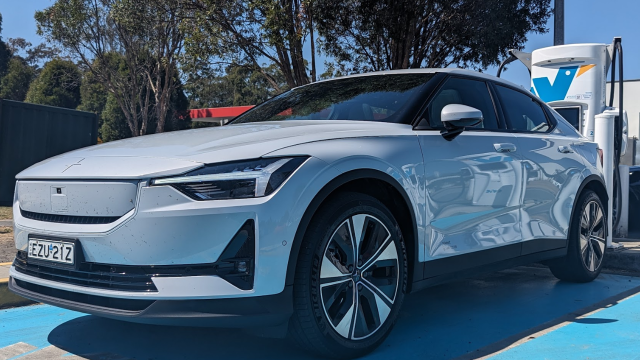Electric vehicle owners reportedly won’t be forced to pay road use charges under the incoming budget, but don’t strike the introduction of the EV Tax from the list yet.
By road use charges, we’re talking about an extra tax on top of your fuel purchase that’s meant to cover your road usage—it’s mostly handled at the moment through a fuel excise, and the money is meant to go towards road maintenance.
In February, the fuel excise became about 49.6 cents per litre, a world of difference from the halving of the fuel excise in March 2022, when it was as low as 22.1 cents per litre.
Because they don’t use fuel and don’t need to refuel at a petrol station, electric cars don’t pay a fuel excise – and therefore aren’t paying the same road usage charge as petrol vehicles.
There has been an attempt in Australia to impose a similar road usage fee upon electric vehicle owners, popularly known as the ‘EV tax’ taking place in Victoria. However, it was decided by the High Court to be unlawful. The Court decided that Victoria didn’t have the authority to impose such a rule, and taxed money was paid back with interest. NSW is planning a similar policy, but it may meet a similar fate.
The Commonwealth does have the authority to impose such a tax, though it’s supposedly not planning to act on any such thing… For now.
The Australian had the scoop this morning that the incoming Budget, which will be revealed on Tuesday, will have no reforms for fuel excise charges, and won’t introduce any new road use charges for electric vehicles.
The national newspaper expects that any such charges won’t be introduced until after the 2025 Federal Election at the earliest. And there’s some sense to why Labor would want to hold off on imposing such a tax; the Government is trying to encourage people to go electric at the moment, with incentives and waivers offered across the commonwealth, states and territories.
Such a tax would make the operational costs of an EV obviously higher, and would also be more difficult to manage than traditional cars, considering that EVs aren’t as conventionally recharged as petrol cars are refuelled. How do you impose a similar extra cost on kilowatts charged, when the parallel is litres pumped, and the source of said energy could come from a public charger, or even a charger in your home?
Needless to say, the government still has time to work it out. Without the excise, though, it is a fair thing to note that EV drivers aren’t necessarily paying the same taxes that petrol car drivers do. It’s an important tax – roads are important, and maintaining said roads is important!
I love EVs, and I love that, if handled properly, you can save money on recharging an EV compared to refuelling a car (provided you’re not charging in public), but this is one of those things that just seems fair – I just hope it’s handled properly.
Anyway, the bottom line is that EV owners can expect to not pay an ‘EV tax’ anytime soon. Anytime at all, however, is a bit optimistic.
Image: Zachariah Kelly/Gizmodo Australia
